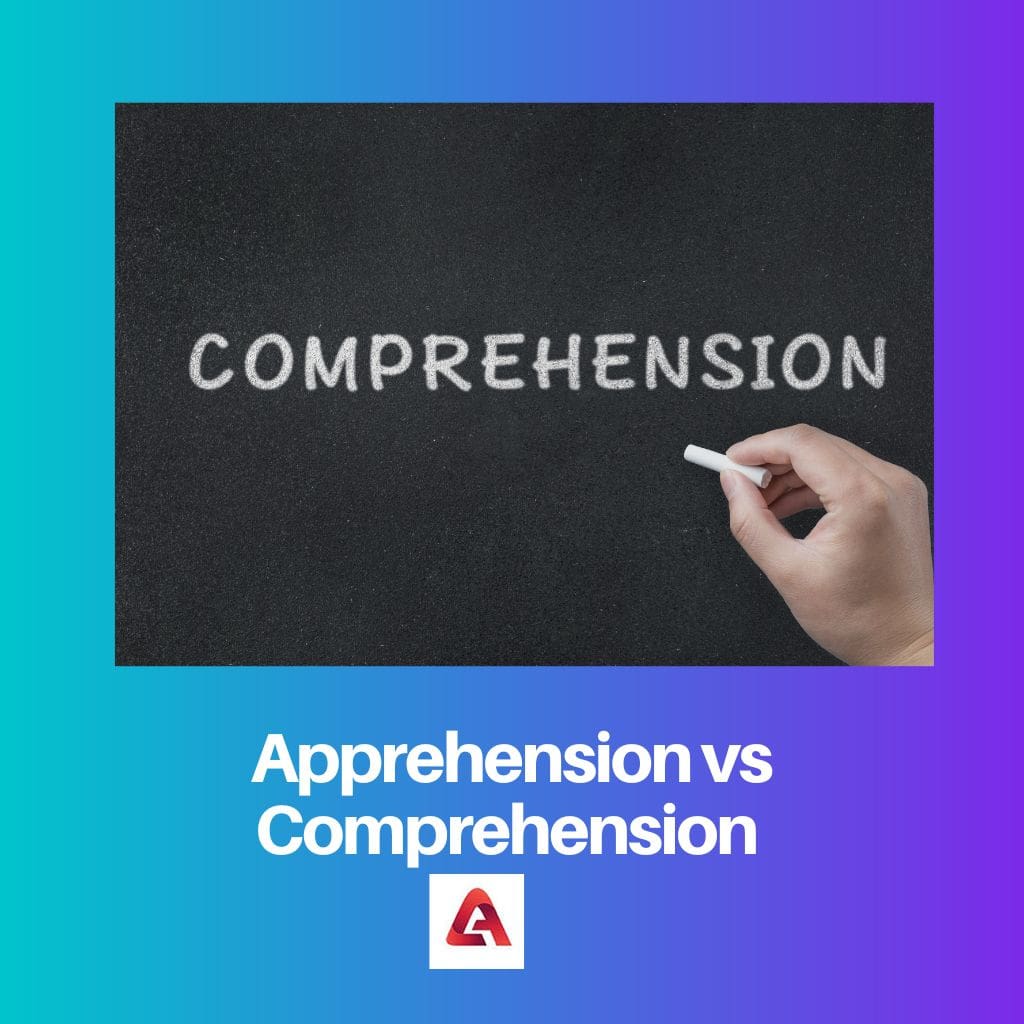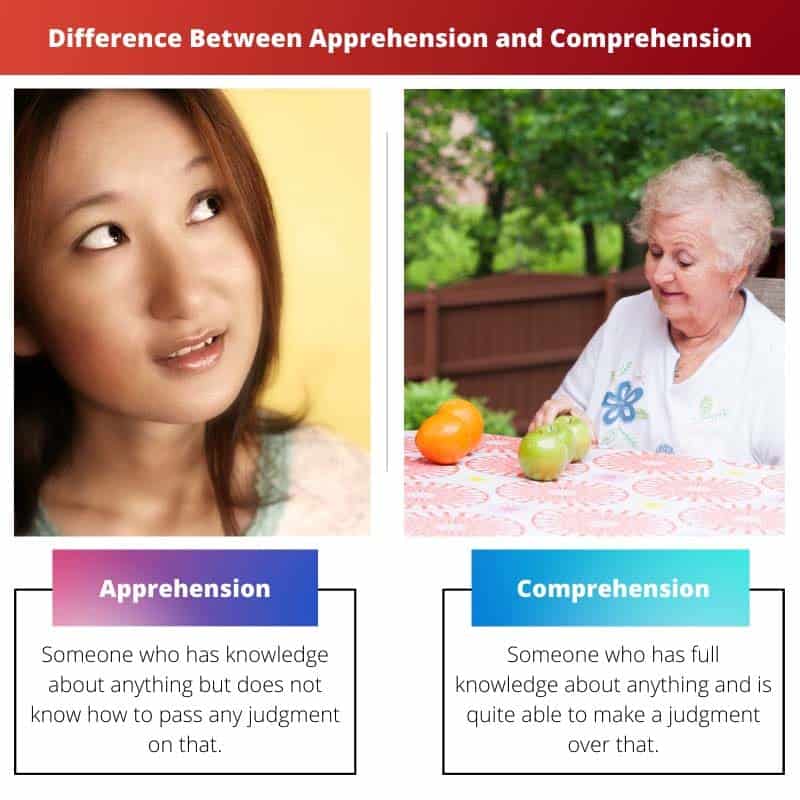English is a language that has many complexities in its wide notion. Although it is quite an easy language to understand and work with, it became quite challenging for beginners to convey what they wanted to say to the other person.
The same meaning of several words sometimes leads to confusion. An example of the same is Apprehension and Comprehension both words almost mean the same but differ in the state of mind grasping the knowledge.
Key Takeaways
- Apprehension and Comprehension are two different cognitive processes related to understanding and learning.
- Apprehension refers to the initial understanding or awareness of a concept or idea.
- Comprehension refers to a deeper understanding or grasp of a concept or idea.
Apprehension vs Comprehension
Apprehension refers to the act of understanding or perceiving something that is seen as difficult or threatening and can also refer to a feeling of anxiety or fear about something that may happen in the future. Comprehension refers to the act of fully understanding or grasping something.

Apprehension is the noun form of the word “apprehend.” The meaning of the word changes with the scenario and field where it is being used.
Example – In criminology, apprehension means to take someone into police custody. Also, it is meant for an idea of observation by someone.
Comprehension is the adjective form of the word “comprehend.” The word exactly means to have a perfect understanding of anything, and someone requires a piece of great and deep knowledge about something.
Or in other words, it is the process where someone has to understand, perceive, interpret, and process the knowledge about something.
Comparison Table
| Parameters of Comparison | Apprehension | Comprehension |
|---|---|---|
| Definition | Someone who has knowledge about anything but does not know how to pass any judgment on that | Someone who has full knowledge about anything and is quite able to make a judgment over that |
| Requirement | It does not require high knowledge. | It does require a high amount of knowledge |
| Feeling | Not so deep | Quite deep |
| Meaning | It is something when someone has not grasped the full knowledge about something. | It is something when a person is fully aware of that. |
| Form | Noun | Adjective |
What is Apprehension?
To be precise, apprehension is a portrayal of our mind made for awareness or understanding by it. Apprehension is the mode of cognizance of the mind where the brain is aware of the thing being discussed but cannot affirm or deny it.
The concept of apprehension is neither true nor false. It is many a time when a person takes in a judgment but does not come to a valid point.
It can also be stated as the presence of mind where someone is completely sensible about what is going on, but it fails to grasp its meaning and completely share any judgment over it.
It is considered a noun form of the word “Apprehend.” And does not require any deep prior knowledge about any topic or concept.
It is a less deep concept. And varies according to the context of the field in which the word is used in.
An example – In criminology, the word apprehension refers to a person who has been taken under custody. It is believed to be the concept of the mind of an individual.
Thus, it differs from individual to individual because of their intelligence and ability to understand things and different concepts.

What is Comprehension?
Comprehension is synonymous with the word understanding; therefore, it plays a vital role in the field of education and psychology and has a wider concept beyond this.
Comprehension is a psychosomatic process where a person is in his ultimate sensible or awakened state and can process any object, message, or situation. They must be able to interpret and perceive it correctly and deal with the situation in the right manner.
It is something that a person perceives or grasps in any situation, object, topic, or person.
Considering an example – If a person can solve any mathematical problem, it is believed that he/she must have understood the concept of the problem. Therefore, in the future, he/she will surely solve the problems related to or similar to the concept.
Comprehension is believed to be a complete process of understanding, perceiving, interpreting, and processing any situation, concept, problem, or object, etc. Therefore, it requires greater knowledge to be more intelligent and comprehensive.
That is why it is also believed to be a deeper concept and can only be expressed by the person who can fully understand and process things correctly and accurately.

Main Differences Between Apprehension and Comprehension
- Apprehension is something when someone does have a piece of knowledge about any topic but is unable to process it and express it, while Comprehension is something when a person has full knowledge about the topic and can fully express it.
- Apprehension does not require any knowledge, whereas Comprehension does require knowledge about everything.
- Apprehension is considered less deep compared to the deepness behind comprehension.
- Apprehension is when a person cannot process the concept, whereas comprehension is when a person is fully able to understand, perceive, interpret, and process it.
- Apprehension is the noun form of its original word, “apprehend,” while comprehension is the adjective form of its original word, “comprehend.”




